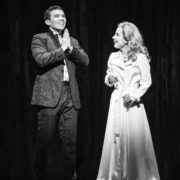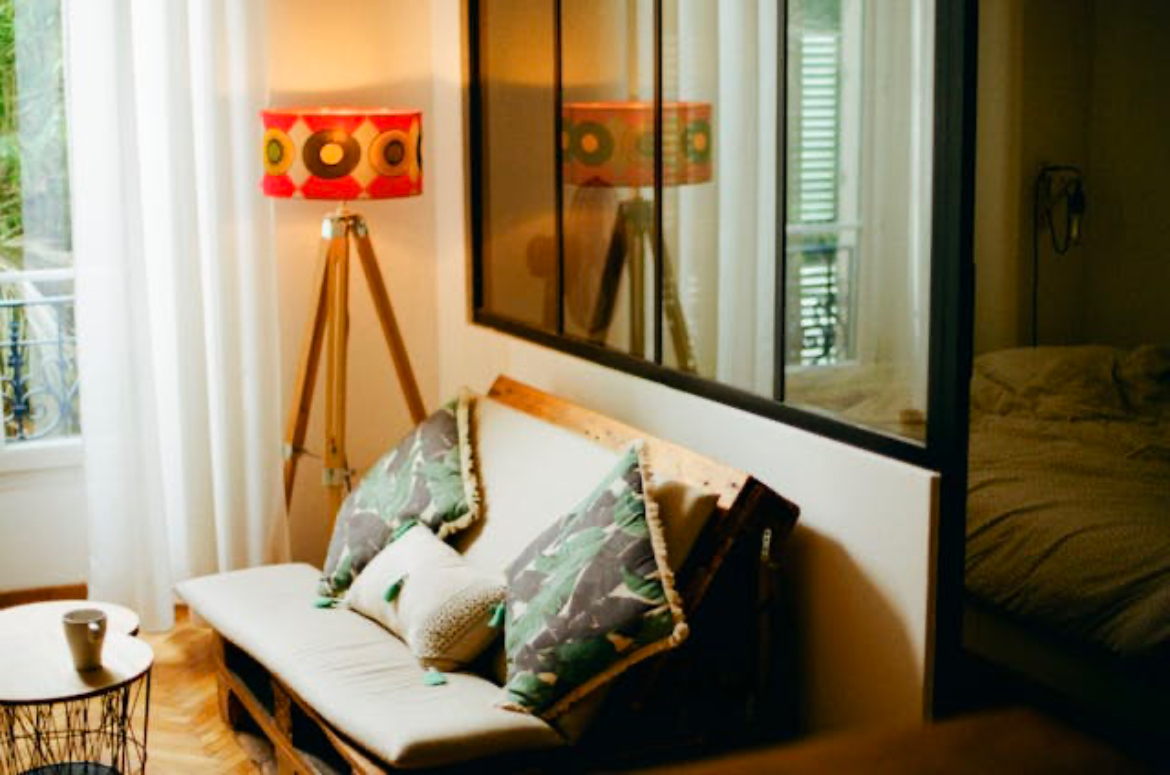“I have emphasized the importance of face-to-face experience of the stranger as we form and nurture democratic habits of the heart. While experience can change the way we look at the world, the converse is also true: the way we look at the world can change the meaning of our experience.” – Parker J. Palmer, “Healing the Heart of Democracy: The Courage to Create Politics Worthy of the Human Spirit,” 2011.
“History despite its wrenching pain cannot be unlived, but if faced with courage, need not be lived again.” – Maya Angelou
Masterful playwright David Henry Hwang and composer Jeanine Tesori, both Tony-Award winners, crafted “Soft Power” with brilliant and smart dialogue about the current state of America, its last 2016 presidential elections, its democracy in contradistinction with China’s communism and the rise of China’s soft power, and its formed alliances around the silk road, a metaphor for how China is extending its influence throughout other nations, by building railroads. It opened Wednesday, May 16 at the Ahmanson Theatre and will run till June 10, 2018.
Yet, it is not a metaphor, it is actually fast becoming a reality, as China forges its ASEAN relationships with East Asia and has extended loans for building trains in the Philippines.
China has made its plans known, a railway stretching across the continent of Nigeria and Ethiopia opened its newly built railroad linking Ababa to the sea in 10 hours in Jan. 2018.
Recall that America’s railroads were built by Chinese immigrants who came to America?
“Soft Power” is a play and a musical whose setting is Los Angeles, early 21st century; and Shanghai, China in early 22nd century. It takes us to Hollywood and Vine, once the mecca of drug dealers, prostitutes and gang bangers. Recall the graffiti-laced walls of former Hollywood? But we also know in reality that councilmember Jackie Goldberg undertook the difficult work of revitalizing this area, now with remodeled Kodak Theater (renamed Dolby Theater) where the Oscars’ red carpet event is held, and surrounded by hotels, shopping complex, restaurants and of late, the remodeled Hollywood Bowl and Ford Amphitheater.
“Soft Power” is more than a play — it is a critique of both America and China and how their citizens are affected by a primary cultural conditioning of duty and saving face upon their native Chinese citizens and the cultural affinity of Americans with guns and their strong need to be always #1 amongst nations.
It makes for Chinese citizens, in the play, with muted hearts, that even if faced with a love interest, Zoe/Hillary (played by Alyse Alan Louis), Xue Xing (adeptly portrayed by Conrad Ricamora) could not muster the courage of his heart to make the relationship happen. It also presents a challenge to American citizens: Are they be worthy to lift up this country now and make a change?
The challenge comes from the lyrics of the song sung by America’s Hillary (played so effectively by Alyse Alan Louis): “So many times it [elections] has left me so battered and bruised/It is just a big big show/I dream of what it could be/I believe/I believe in democracy/until America regains soft power/That dreams is everything I am/I can’t give you [Xue Xing] what you need.”It was a very effective portrayal of American Hillary that we [the audience] could believe, as with her, that the 2016 elections was one big, big show.
Yet, I could feel, from this play’s portrayal, that her love for America is so real.
This is one brilliant play with lyrics sang by Xue Xing’s character, brilliantly performed by Ricamora, showed the hollowed-out core of America: “Who do we borrow from?/Maybe we [China] can forgive your debt/We want you [America] to join in the family of nations/We seek your happiness/You fill your emptiness with alcohol/Your selfishness is your downfall/Some call you barbarians/Cease the wars to have peace/Join us in the Future/The new Silk Road/One that Connects the Whole Family of Nations.”
It challenges the citizens of American democracy – using musical lyrics – “are we worthy enough for this American democracy – do we have the capacity to lift up this country and change it from being a barbarian nation in love with guns, wars, to lay these guns down to join the family of nations for a bold future of peacemaking?”
Are we, Americans?
Xue Xing further challenges and now in the White House with the Vice President, and other cabinet members with guns, who sings with gusto: “Other nations have joined the silk road/Lay down your fears/Lay down your pride/Lay down your need to be #1/Lay down your guns/Lay down your guns.”
The song made me recall a Smithsonian’s exhibit that I saw called, “The Price of Freedom: Americans at War,” displaying America’s military might from the French and Indian Wars to the present conflict in Iraq, about 13+ wars, from the 1750s to the present. Today’s claim on the federal budget for the military is at $700 billion for 2018, $300 billion short of a trillion.
Imagine if that budget of close to a trillion were spent for building highways, schools, potable drinking water, power resumption in Puerto Rico, research laboratories to stop EBOLA, HIV and HPV (two viruses that Bill Gates had to explain to our current #45th President)?
Imagine if that close to a trillion dollars were spent to find new wells, new sources of water around the world? Imagine what America’s soft power would be around the world in 195 countries in the world?
Would we have sustained peace-making and ensured the end of war-related violence?
It would mean the partial solution to the world’s issues and it just might make all of us more sensitive to everyone’s sufferings around the world, an example that Pope Francis showed in the recent documentary, “A Man of His Word” by Wim Wenders. It opened May 18 in U.S. theaters. It showed Pope Francis on a personal journey witnessing sufferings around the world. It was such a powerful documentary that 50 folks I watched with at the Landmark on Thursday night stayed still to watch the rolling credits and to simply soak in the Pope’s message while some cried. It was so powerful to see him inside Auschwitz, sit inside the gas chamber and to see the dome that carried the photos of 6 million Jews who perished during the Holocaust with an interfaith circle of rabbis, priests and Imam of the Muslim faith, about 20 in all, with Pope Francis in the center, humbly leading, yet humbly sharing space with all.
Back to the musical, “Soft Power.” It was awesome to watch Broadway’s dance moves, reminiscent of “The King and I” and the graceful era of Gene Kelly and Fred Astaire, as part of the love story between Hillary and Xue Xing. Equally amusing was the lessons on Chinese language tones, four of them, that got the audience hysterically laughing. It is quite empowering to watch a predominantly Asian American cast act, sing, dance and portray effectively the scenes in this play. It illustrates effectively that folks of color, as Whites, are as adept in any role we choose to do.
The lyrics by Hwang and music and additional lyrics by Tesori affected one’s beliefs about where is the heart of America’s democracy, as much as where are the hearts of duty-bound native Chinese citizens in Shanghai?
It was thought-provoking to see America’s love for guns such that the Guardian newspaper estimates 88 guns for every 100 people in America, and that 265 million guns are now owned by Americans.
Art imitates life but with this play, we hope life today imitates the aspirations of this play about the heart of American democracy and how perhaps we can get it beating more robustly by caring for those around us. Perhaps by considering their points of view and going a bit further than China and the United States as Hwang suggests in his brilliant creation, the musical “Soft Power” and as Pope Francis’ documentary “A Man of His Word” shows us by his personal journey? Can we, America?
Can we heal the heart of America’s democracy as Parker J. Palmer asks? Can we change, America from gun-toting lovers of the Wild Wild West era of the 1950s to become responsible citizens of the family of nations loving peace?
Though we may not unlive history, we can perhaps create a silk road, much like China’s building of the railroads in Africa, Philippines and across Asia.
* * *
Prosy Abarquez-Delacruz, J.D. writes a weekly column for Asian Journal, called “Rhizomes.” She has been writing for AJ Press for 10 years. She also contributes to Balikbayan Magazine. Her training and experiences are in science, food technology, law and community volunteerism for 4 decades. She holds a B.S. degree from the University of the Philippines, a law degree from Whittier College School of Law in California and a certificate on 21st Century Leadership from Harvard’s Kennedy School of Government.
She has been a participant in NVM Writing Workshops taught by Prof. Peter Bacho for 4 years and Prof. Russell Leong. She has travelled to France, Holland, Belgium, Japan, Costa Rica, Mexico and over 22 national parks in the US, in her pursuit of love for nature and the arts.







